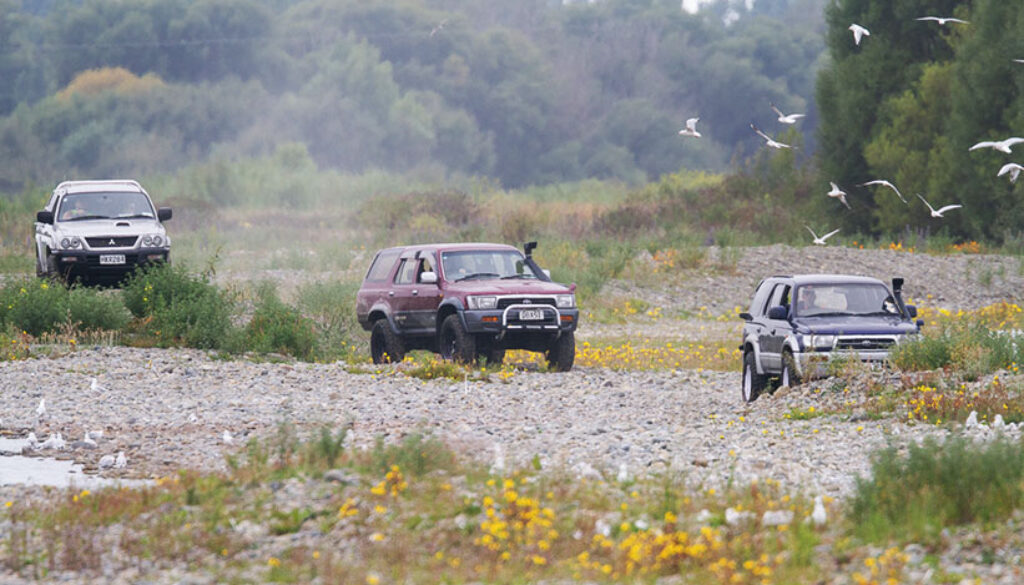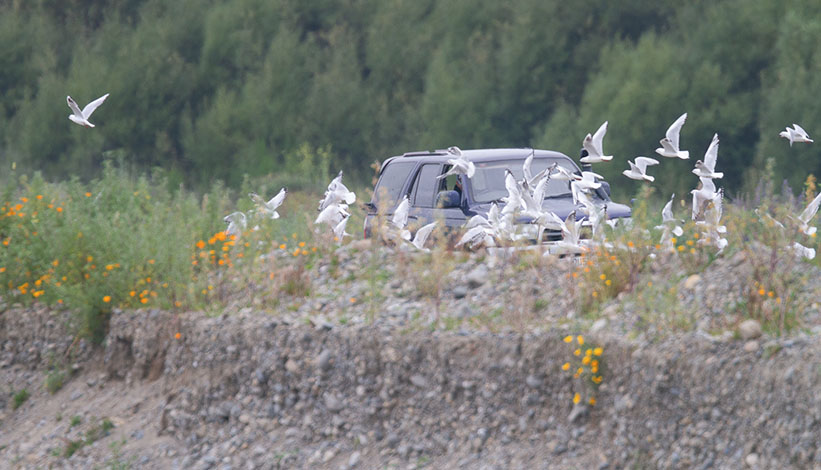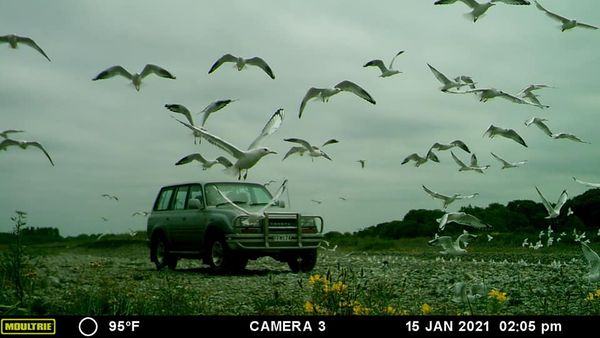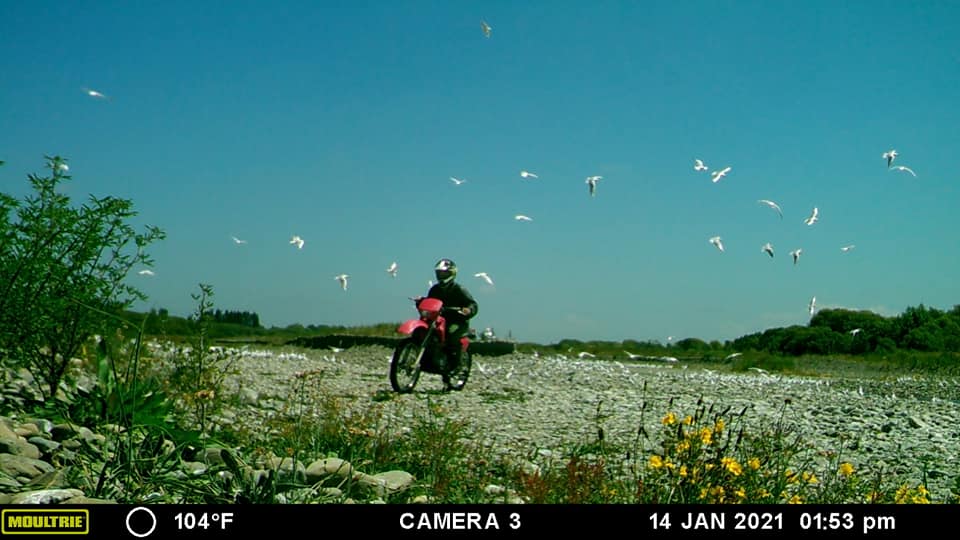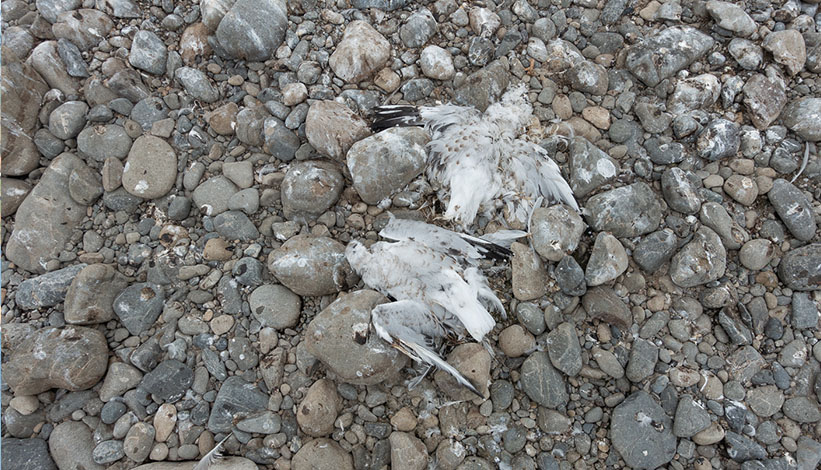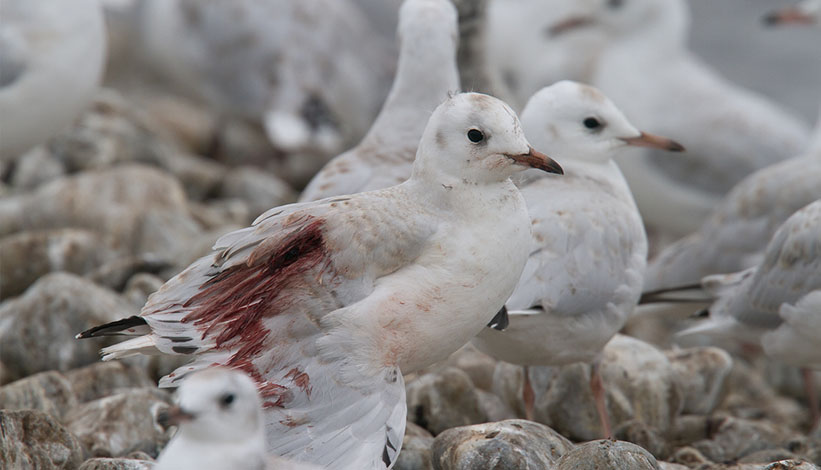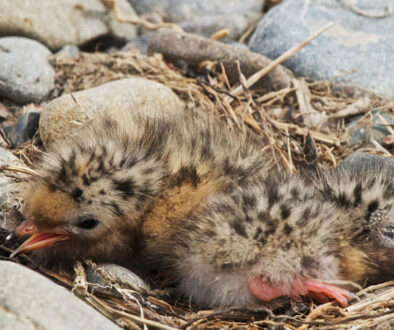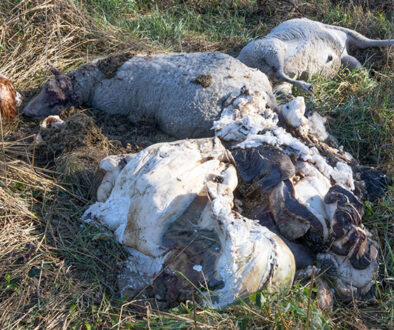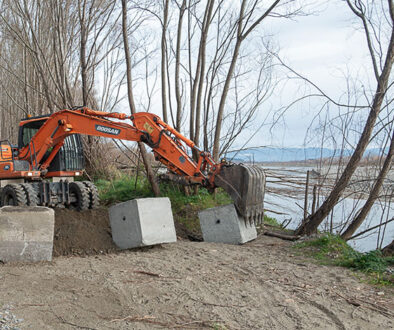Gull disturbance
This year we have had the second biggest black-billed gull colony on the Ashley River in 20 years. The 1,278 nests have produced approximately the same number of fledglings (flying chicks) – this is a very good outcome. We have had no real problem with ground predators with only 2 Norway rats caught in traps in the area and no sign of them killing anything. In a slightly bigger gull colony last year rats killed more than 100 chicks. Also harrier predation has been minimal – perhaps due to pied stilts, black-fronted terns and adult gulls chasing them away. Scarecrows that we placed in the area probably have also helped. Last year harriers also killed more than 100 chicks. Adult gulls have been able to get enough food for their chicks from irrigated farms in the lower Ashley area.
However recently four-wheel drive vehicles and motorbikes have been recklessly driving through young gull chicks. In one case a 4wd was seen to speed up when approaching the birds.
Most of the chicks can fly and get out of the way to some extent, but at least 10 appear to have been killed.
There are much more vulnerable smaller chicks as well as black-fronted tern and banded dotterel chicks in the area.
There hasn’t been a major amount of damage done, but it is very disappointing to see. Environment Canterbury and the our group have done a lot of work through education, publicity and the installation of signs and physical barriers to stop vehicles getting on the river – this sort of thing should not still be happening.
People should be aware that killing protected native wildlife can result in penalties of up to $100,000 in fines and 2 years in prison. Black-billed gulls have a conservation status of nationally critical.

